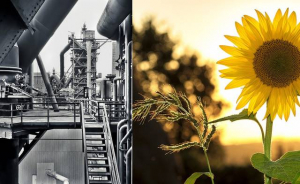-
Home
-
About Scanautomatic
-
Activities
-
Plan your visit
-
For Exhibitors
-
How can we create a sustainable future for industry?
 The Coronavirus crisis has shaken the whole world and manufacturing industry is no exception. The last six months have been fraught with major changes and challenges. And this poses risks that may impact both competitiveness and the pace of development towards a more sustainable future in the long term. Something has to be done, but what?
The Coronavirus crisis has shaken the whole world and manufacturing industry is no exception. The last six months have been fraught with major changes and challenges. And this poses risks that may impact both competitiveness and the pace of development towards a more sustainable future in the long term. Something has to be done, but what?
– Many companies are working hard to adapt their operations to the new world situation. We can see a clear change in companies, where major investments and development projects are being postponed to the future. This of course affects our conditions and competitiveness in the long term, says Catarina Berglund, CEO of Automation Region.
The current pandemic has not only hampered development for the future but also highlighted current problems in industry. When the situation reaches its peak, as it has done lately, we soon see what gaps exist and, above all, which problems are most acute.
– Many challenges have come up now. One example is the availability of goods. Our value chain is very vulnerable and is too easily broken. We must question where we get our goods from and ensure that we have a sustainable value chain, says Robin Teigland, Professor of Management of Digitalization at the Department of Entrepreneurship and Strategy at Chalmers University.
Right now, Swedish industry needs to focus on recovery while at the same time not slowing down too much. According to Teigland, there are many changes that need to be made if we are to have a chance of meeting the requirements and achieve sustainability objectives both today, and especially, in the future:
– Sustainability is urgent and the biggest challenge in solving the problem is thinking in new ways. The technologies, structures and processes we have today will not be able to offer the necessary solutions. Companies need to start collaborating with each other and adopting a larger life cycle perspective, instead of staying in their own corner and focusing on their particular detail in the process.
By collaborating across company boundaries, we can really influence the conditions for change and the future of industry.
– It’s not just about technology-driven innovation, now it’s about mission-driven transformation, where we must work together to ensure that we can live on earth. It is a mindset that influences the choice of our partners, suppliers and customers. New forms of collaboration are important because the competences of the future, to an even greater extent than before, will not be something owned by individual organisations and people, Catarina Berglund says.
The importance of meeting, initiating collaborative activities and finding solutions together will only keep increasing. At Automation Summit on 6 October 2021 politicians, researchers and companies will gather to discuss the future of industry and how it will be both smarter and more sustainable. This year, Automation Summit will take place digitally in collaboration with the Swedish Exhibition & Congress Centre, IVA and the strategic innovation program PiiA.
Scanautomatic is the meeting place for exploring the automation and digitalisation of the industry of the future.
Together with ProcessTeknik and Nordic Food Industry, Scanautomatic is a cross-industry event with three trade fairs under one roof. With the aim of increasing competence to confront common challenges, in 2021 we will focus on three areas – sustainability, smart industry and energy. Scanautomatic takes place on 4-6 October 2021 at the Swedish Exhibition & Congress Centre in Gothenburg.
Article from Ny Teknik »